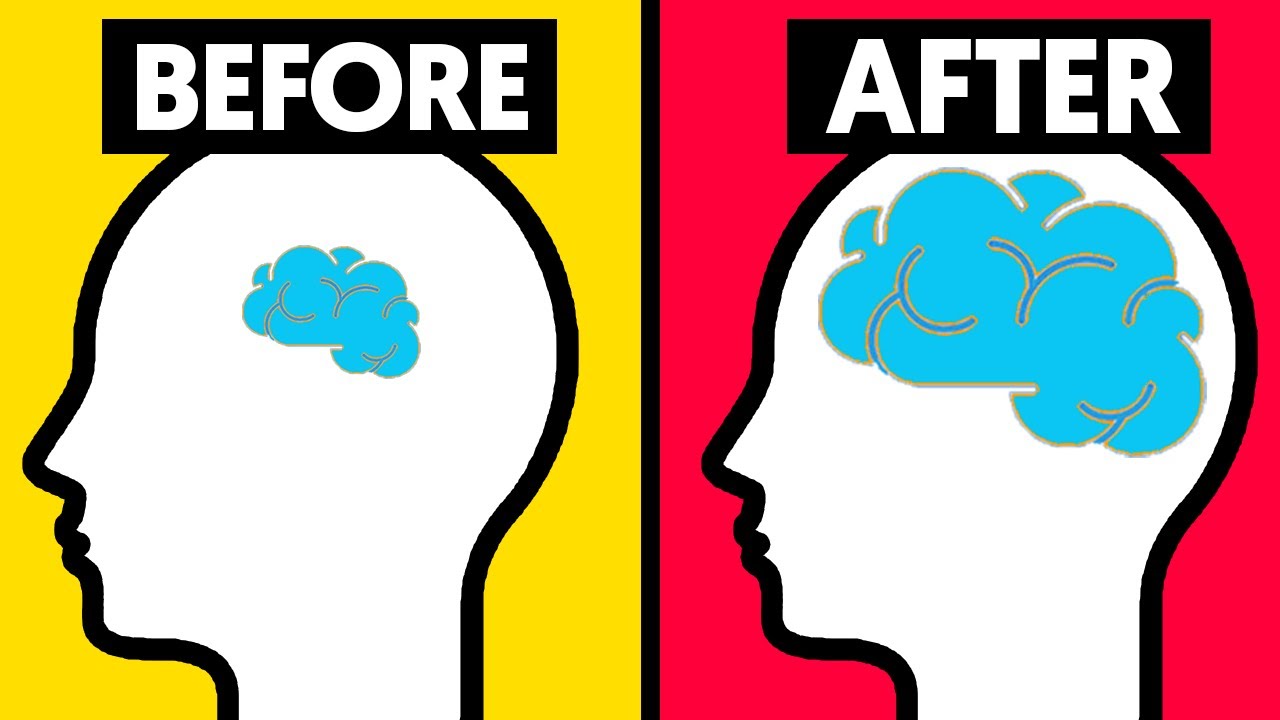5 certain techniques that will increase your IQ
Most people, if not all, think that an IQ is a constant, something that’s already fixed.
You take the test and that’s how much your IQ will always be.
Well, we’re here to bring you good news.
Intelligence is actually far more flexible than what most people think.
Likewise, your brain is a lot more malleable than it is rigid.
Nonetheless, the numbers don’t show all aspects of a person’s intelligence.
So, you shouldn’t beat yourself up for it.
That said, if you want to score higher on the next IQ test, some brain exercises could definitely help.
Puzzles and games, for instance, are great at boosting your IQ.
That and four other techniques that we will be talking about more in the next few minutes, so make sure to stay with us.
1. Exercising
Believe it or not, but yoga, running, cycling, or basically any strength training activities can make you smarter.
According to research, physical exercise boosts cognitive health and even improves the functioning of brain regions that control the cognitive processes.
Put simply, the increased oxygen intake, hormones release, better nutrition, neurotransmitter changes, and other things that come with exercise influence the brain on the molecular level that will make you smarter.
2. Playing puzzles and games
Crossword puzzles and mind games like Chess and Sudoku help increase your IQ.
Intricate and complex games, in particular, work by developing your problem-solving skills, improving your concentration, and stimulating both sides of the brain that help strengthen your corpus callosum.
This certain part of the brain connects the two hemispheres, and experts believe that it was partly the reason Einstein was so intelligent.
Suffice it to say, if you can work on developing your corpus callosum, this could lead to higher IQ.
3. Learning a new language
According to neuroscience, learning a new language makes the brain grow.
Since it involves navigating a new series of complex rules, it promotes cortical thickening and increases the volume of your hippocampus.
In layman’s terms, learning a foreign language expands the language centers in the brain, which in turn, helps with other language activities like problem-solving, reading, and negotiating.
4. Meditating
Meditation is an example of a mindful technique and could be a helpful brain exercise because it involves training the mind to become silent.
While conventional exercises help the brain become better at processing information, with meditation, it trains the brain to be more observant.
Studies have revealed that the effects of meditation on cognitive have helped prevent age-relative cognitive decline.
Moreover, it was also discovered that meditation improved working memory, visuospatial processing, and executive functioning.
5. Acquiring a new skill
Learning doesn’t always have to be done in school.
When you have time, learn a new craft or take up a new hobby.
Learning new things keeps the brain active and stimulates the areas of your mental functioning that may have been idle.
Plus, doing so requires navigating new information so it will help develop your problem-solving skills.
Also, be confident and positive when learning new things because self-esteem and attitude are found out to influence your capacity to acquire new skills.
Follow those five tips and you’ll be able to maintain a sharp mind, fresh memory, and strong focus.
If you have questions, comment them below.



![[ID: Hx_A0iLhdr8] Youtube Automatic](https://bizimtube.com/wp-content/uploads/2021/03/id-hxa0ilhdr8-youtube-automatic-236x133.jpg)
![[ID: lp7w0UmpuIs] Youtube Automatic](https://bizimtube.com/wp-content/uploads/2021/03/id-lp7w0umpuis-youtube-automatic-236x133.jpg)
![[ID: s2-7T1TH-lY] Youtube Automatic](https://bizimtube.com/wp-content/uploads/2021/03/id-s2-7t1th-ly-youtube-automatic-236x133.jpg)
![[ID: b_lakC9M4UQ] Youtube Automatic](https://bizimtube.com/wp-content/uploads/2021/03/id-blakc9m4uq-youtube-automatic-236x133.jpg)
![[ID: r44yl6nPONs] Youtube Automatic](https://bizimtube.com/wp-content/uploads/2021/03/id-r44yl6npons-youtube-automatic-236x133.jpg)
![[ID: pAwto1YQjA8] Youtube Automatic](https://bizimtube.com/wp-content/uploads/2021/03/id-pawto1yqja8-youtube-automatic-236x133.jpg)
![[ID: XETG8azHiv4] Youtube Automatic](https://bizimtube.com/wp-content/uploads/2021/03/id-xetg8azhiv4-youtube-automatic-236x133.jpg)
![[ID: f3G_-S_2HUk] Youtube Automatic](https://bizimtube.com/wp-content/uploads/2021/03/id-f3g-s2huk-youtube-automatic-236x133.jpg)
![[ID: G8oWns54snA] Youtube Automatic](https://bizimtube.com/wp-content/uploads/2021/03/id-g8owns54sna-youtube-automatic-236x133.jpg)
![[ID: s0lIFXhu6aw] Youtube Automatic](https://bizimtube.com/wp-content/uploads/2021/03/id-s0lifxhu6aw-youtube-automatic-236x133.jpg)
![[ID: 4UTd2Ev8eYg] Youtube Automatic](https://bizimtube.com/wp-content/uploads/2021/03/id-4utd2ev8eyg-youtube-automatic-236x133.jpg)
![[ID: RKBGBjVJBxQ] Youtube Automatic](https://bizimtube.com/wp-content/uploads/2021/03/id-rkbgbjvjbxq-youtube-automatic-236x133.jpg)